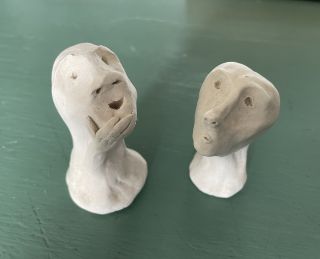Cognition
Do You Ask the Right Questions?
Have a "quescussion" to delve into the problems you wish to solve.
Posted March 28, 2023 Reviewed by Abigail Fagan
Key points
- Asking the right questions is key to discovering the right answers.
- A "quescussion" is a conversation conducted only through questions and can lead to deeper understanding and research.
- We can gain insight into misinformation and disinformation by asking deeper and deeper questions.
As a child in the 1960s, our family’s encyclopedia was a prized possession. When a topic arose at dinner that my parents didn’t know much about, I raced to the bookshelf to grab the volume that would reveal the information I sought.
These days at dinner, when we have a question Siri is a voice prompt away. There are immediate answers to our most specific queries, and we don’t lack information for long. From my perspective, this is a wonderful development, yet I’m aware that the glut of facts – as well as the glut of misinformation and disinformation in the media – doesn’t necessarily make me a better thinker or problem-solver.
To be a solutionary who can truly identify the interconnected causes of problems – whether in relationships, communities, nations, or our world – and solve them in ways that do the most good and least harm for everyone affected, we need to begin by asking the right questions.
Years ago, I was introduced to a question-focused activity called a "quescussion" by educator Dr. Mike Johnston, a teacher and international school leader on the forefront of sustainability education. During the activity, Mike had us pair up and instructed us to have a discussion about an issue conducted solely through questions. We could ask any question in response to our partner’s question, but we could only ask questions. Our answer to our partner’s question? Another question.

The quescussion was a bit awkward as we groped for another question as a response to our partner, with longish pauses in between, but it was also revelatory. Forced to ask only questions, we dove deeper and deeper into the topic of discussion. We unveiled layers of inquiry that would later lead us to more effectively and thoroughly examining the issue in question.
If we want to solve problems in our relationships, communities, and world, we need to understand their interconnected causes, which means we need to ask the right questions. A quescussion will reveal levels of questioning and thinking that can move us toward the answers we seek.
In a relationship, a quescussion can help us listen less defensively. In the context of polarized issues in our society, a quescussion can help us move from knee-jerk side-taking to more nuanced thinking. In the context of big challenges like climate change, a quescussion can lead us toward systemic change.
Here’s what a quescussion might sound like around the issue of misinformation and disinformation in our society. Let’s imagine the quescussion is between two friends, Aisha and José:
Aisha: How can we distinguish between misinformation, disinformation, and truth?
José: How can we ever really know what’s true?
Aisha: Why do so many people seek to deceive others?
José: Why do so many people believe falsehoods even when there is so much contrary evidence?
Aisha: Why is it so difficult to change our minds when the evidence is so strong?
José: What would help people to be more open and less attached to their beliefs?
Aisha: What would help people think critically about information they hear, read, or see?
José: Whom do you trust?
Aisha: Whom do you trust?
José: Why do you trust them?
Aisha: Does mistrust breed more misinformation and disinformation?
José: How many times have I shared misinformation myself?
Aisha: How can we break the cycle of increasing misinformation and disinformation?
José: Are misinformation and disinformation actually increasing, or do we just think they are?
Aisha: Was misinformation and disinformation more or less common 20, 40, or 60 years ago than it is now?
José: How could we find out the answer to that question?
Aisha: Is trust declining?
José: If trust is declining, could that inspire more critical thinking and truth-seeking?
Aisha: Could declining trust lead to more confirmation bias and belief in disinformation?
José: Why are human minds so susceptible to misinformation and disinformation?
Aisha: What can I do to make myself less susceptible?
José: What steps can I take to ensure that I don’t spread misinformation and disinformation?
José: What steps can we take to help others do this as well?
Do you notice how much is revealed through this quescussion? How the “conversation” touches upon core questions that can ultimately lead to important research and investigation; deeper understanding; and more powerful responses to the underlying problem? The point of a quescussion – whether over five minutes or 20 – is to uncover thought-provoking and essential questions that can lead us toward deeper investigation of the causes of – and potential solutions to – the problem we’ve identified.
As you identify problems in your life, your community, your country, and the world, ask a friend, family member, or colleague if they’ll participate in a quescussion with you. Set a timer for five to 20 minutes and record the quescussion so you can listen to it and discover insights and direction for pursuing answers to the challenges you face more wisely and effectively.
After listening to your quescussion, notice what surprises you. Note the questions you believe to be most valuable in pursuing solutions. Ask your partner to do the same.
Do you want to try it? When? Why not now?




